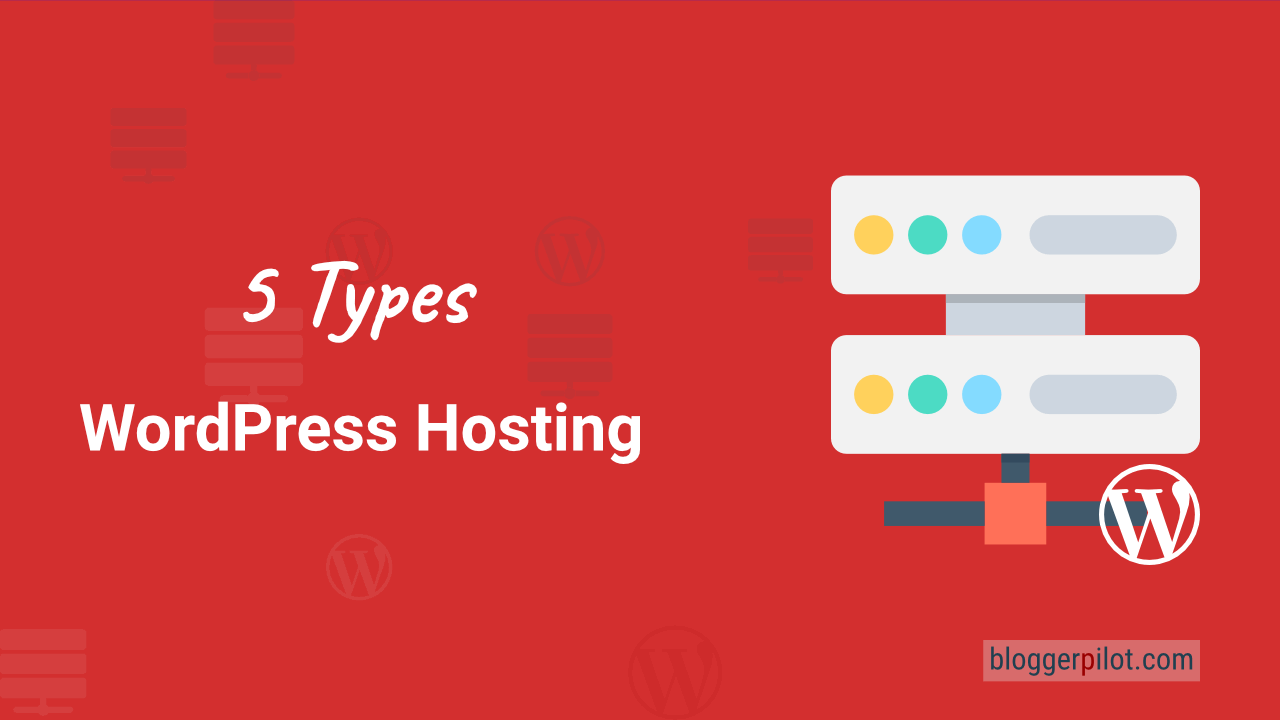5 types of WordPress hosting and which of them are really useful and recommended
The topic of WordPress hosting has been on my mind here on the blog for a long time and I always try to share my knowledge and my own experiences with you, my reader, in the best possible way. After I recently already told you about classic decision factors when it comes to web hosting, now it’s about the different types of WordPress hosting.
Five different types of WordPress hosting can be mentioned. Specialized WordPress hosting, shared hosting, V-server, server and cloud hosting. These hosting types differ greatly in speed, price and usability. Get to know the best hosting for you.
In principle, WordPress is first of all an ordinary content management system. So, where a MySQL database and PHP are available, the CMS can usually be installed and operated without any problems. But of course, there are good and bad hosting and above all, there are also very different types and ways to host WordPress.
These types of WordPress hosting I will now explain to you in more detail in this article. In addition, I would like to break down what it has to do with the individual offers exactly.
You can book domains with most providers, or externally with a domain provider like NameCheap.
5 Different types of hosting
| Speed | Price | Usability | Examples | |
|---|---|---|---|---|
| WordPress hosting | ★★★★★ | medium | simple | HostPress Raidboxes |
| Shared hosting | ★★★ | low | simple | WP-Projects Hostinger |
| VPS, V-Server | ★★★★ | medium | medium | HostEurope |
| Dedicated server, root server | ★★★★ | high | high | Liquid Web Nexcess |
| Cloud Hosting, CDN | ★★★★★ | high | high | Cloudways |
Whether self-managed, rented, remotely in the cloud or with a web host that offers WordPress hosting exclusively, there are now very many ways to run a website based on WordPress. However, not all types of WordPress hosting are recommended and not on every server environment it makes sense to install WordPress at all. Not every server is automatically suitable for the CMS.
Let’s take a look together at what types of WordPress hosting exist and which of them are worth recommending in individual cases. To make sure you know what I’m talking about, I’d like to list all five types, including those that may not be suitable for WordPress at all.
WordPress hosting
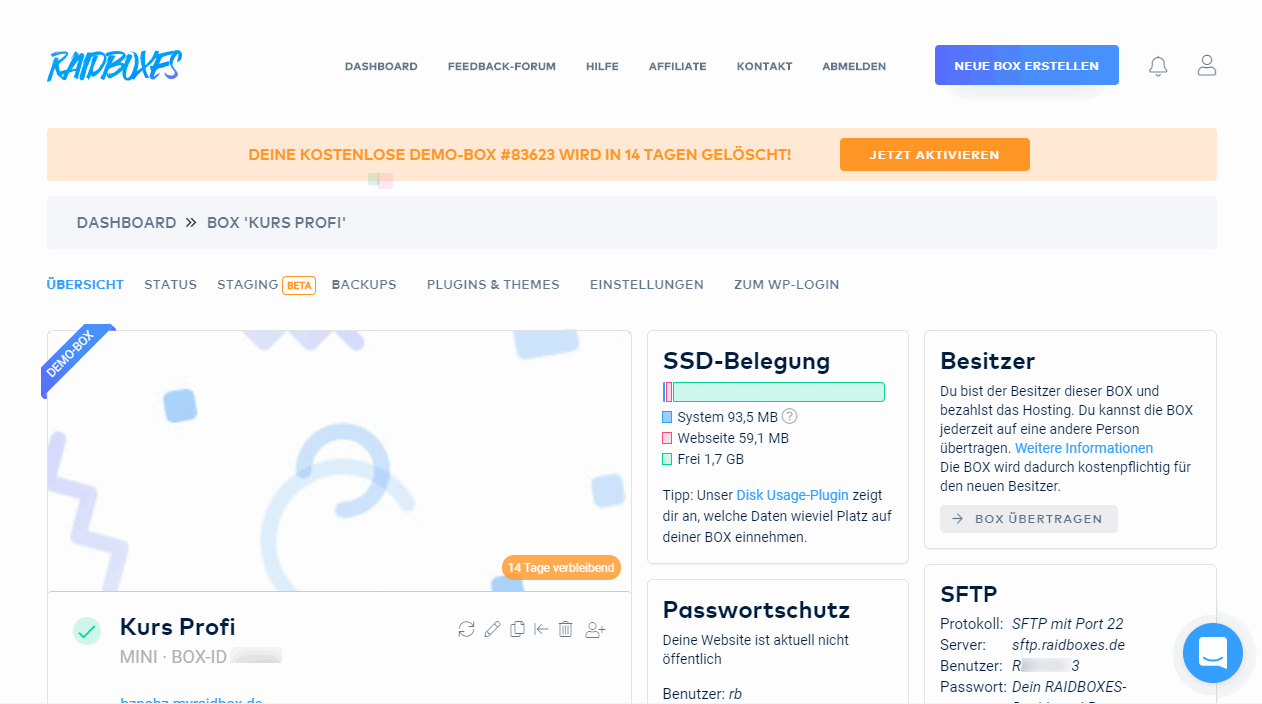
A special WordPress hosting is usually set up instances, so called V-server or in the most expensive packages then even root servers. However, these are already installed and fully optimized and adapted to the content management system WordPress. The same has mainly one reason, namely that WordPress runs much better under certain conditions. So it usually needs the latest PHP version and in the best case a faster database connection than usual for other websites. So WordPress has its peculiarities that the hoster should take into account.
The pacts are often throttled according to visitors or calls. For example, up to 10,000 visitors per month or up to 250 calls per minute. This is significant because WordPress hosting is billed differently here than ordinary hosting. Therefore, if you want to cope with higher visitor traffic, you will need stronger hardware and thus a more expensive package. WordPress hosters therefore usually don’t throttle by performance, but instead name maximum visitor or call counts per plan.
Read my reviews on HostPress and Raidboxes.
So where the layman in hosting often does not know whether two gigabytes of RAM and a V-server are enough to manage certain numbers of visitors with WordPress, WordPress hosters try to convey this already in the tariffs. In addition, most offers at WordPress hosters are limited, which is why the next higher one is due when a certain number of calls is reached.
However, the biggest advantage is that WordPress just runs. You don’t have to worry about the memory, CPU or structure and software of the server with WordPress hosting. You book an appropriate package and up to the visitor limit, your WordPress website will also work satisfactorily. A very simple and effective solution, but of course it wants to be paid. Where someone else takes care of it, there are almost always higher costs.
Shared Hosting
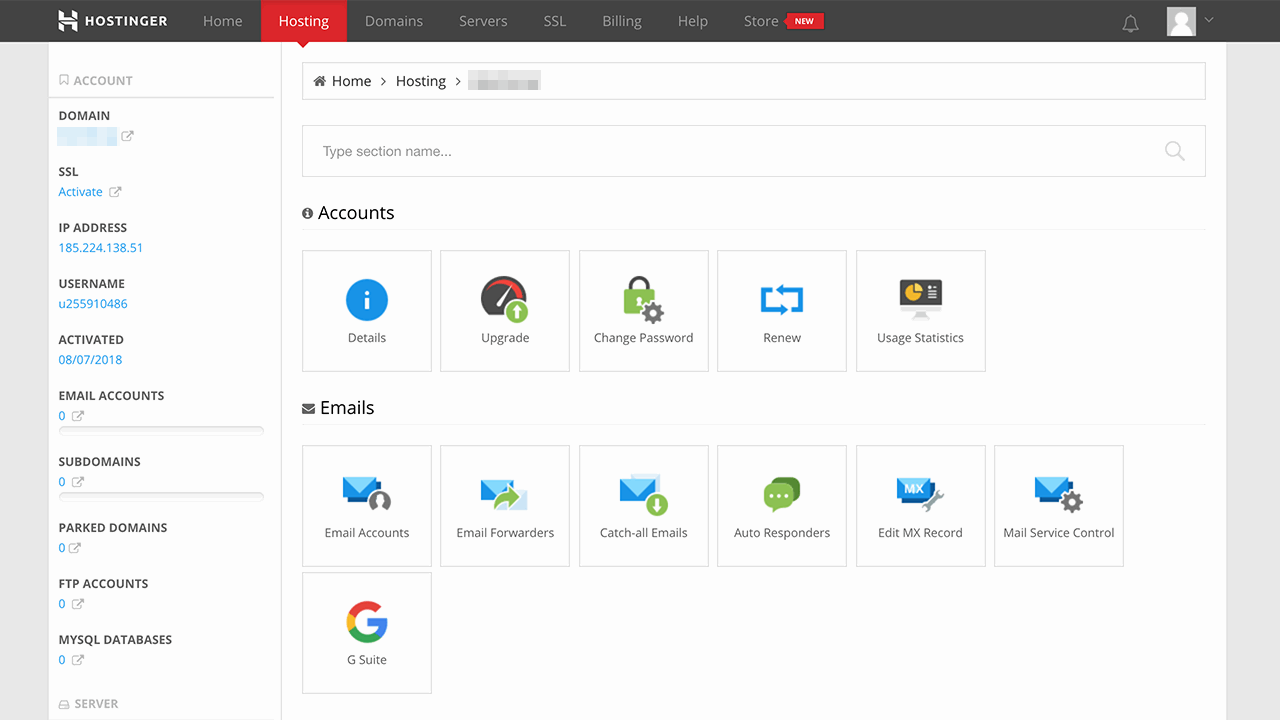
Shared hosting is the cheapest method and at the same time the weakest, which is why it is usually out of the question for WordPress. With shared web space, you get a small web hosting package, often with a website builder included. For a few euros a month you can run a small website. The server is shared with countless other customers, which is why the performance is limited accordingly. Shared hosting is therefore sufficient for the website of the hairdresser in the village, but not for your WordPress website with several thousand visitors a day. Shared hosting is good for small, static websites that are rarely accessed. That’s all.
Almost every company in the industry offers share hosting services. However, you should avoid the cheapest offers.
Since there is no access to configuration and the whole thing is really aimed more at beginners, there is also little growth possible. This type of hosting is therefore not scalable. But shared hosting often costs only a few euros per month. I still advise you to start with a V-Server, because it can grow with your website and many hosters offer upgrade options.
VPS, V-Server
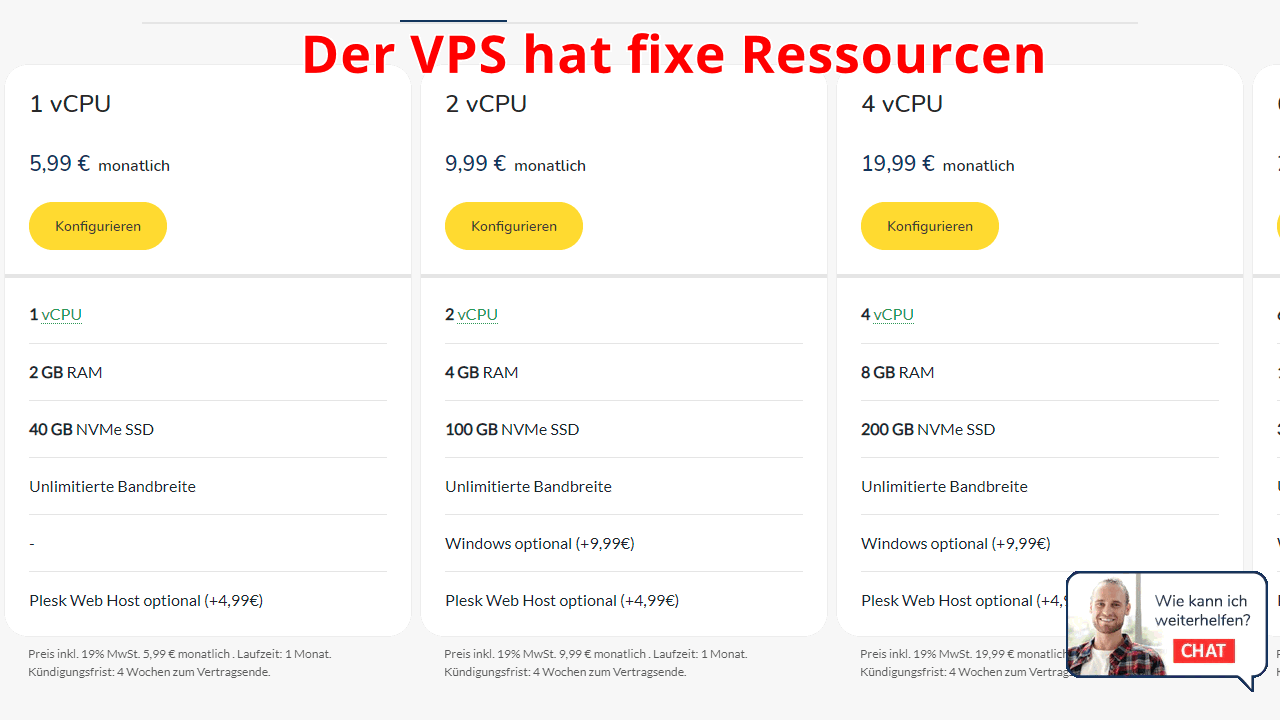
Here we are with the Virtual Private Server or just the so-called V-Server. Unlike the shared hosting, the customers are strongly limited by V-Server. Nevertheless, with the V-Server you do not have your own server, but only a virtual server. A server is divided into several small instances, which can all be set and managed independently. You can configure the V-Server according to your own wishes, just like a full-fledged root server. Nevertheless, you share the hardware with other customers.
The advantage of the V-Server is that every customer has his own fixed resources. Strictly speaking, everyone shares a server, but due to the virtual environment, everyone has their own small area there. The performance is accordingly limited, but the V-server is more cost-effective than a root server. Many providers also provide upgrade options for more power. Ideal to start with a small WordPress blog and then, with higher access numbers, quickly and easily upgrade.
Dedicated server, root server
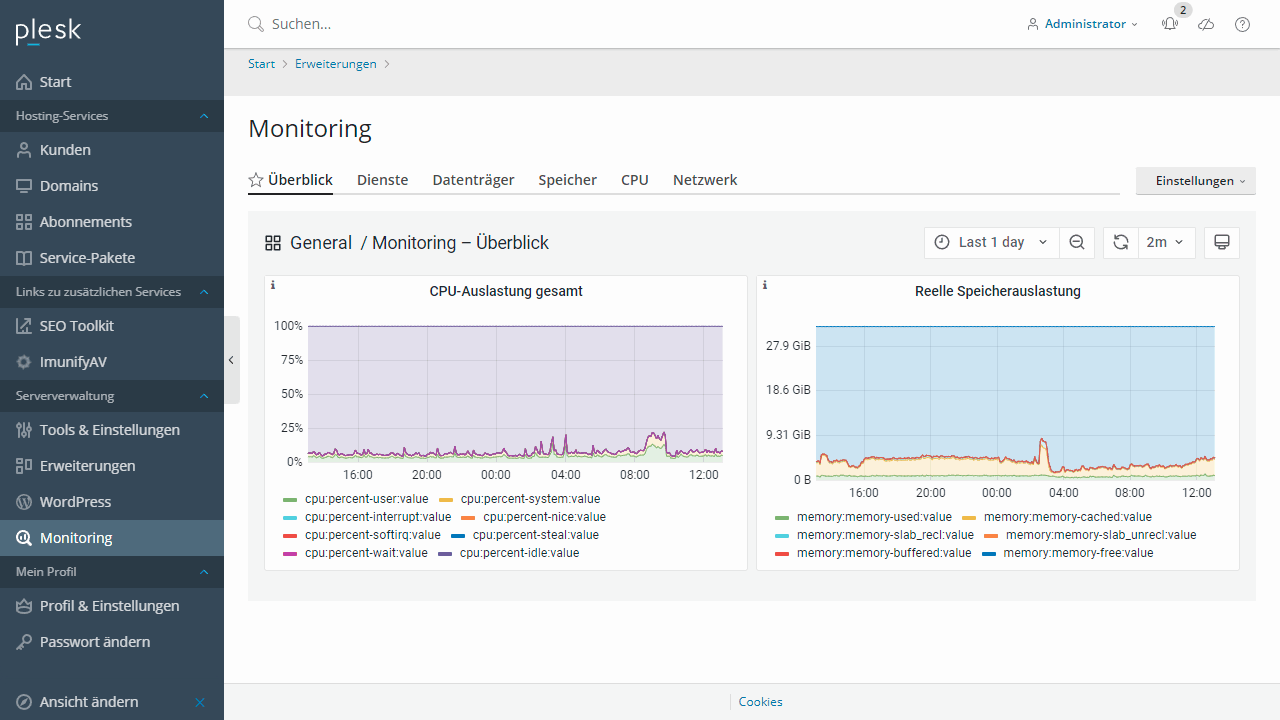
The dedicated server or root server is your own web server. Here you do not share anything with other customers, but rent the hardware, which is then available to you alone. This means that you can set up everything exactly the way you want it. Because you own all the technology and the resources are not shared, you can also easily manage multiple WordPress installations at once. You can do that on a V-server, but multiple sites will eventually reach their limits and performance will plummet. The root server lasts longer.
All this comes at a price. Root servers are very expensive and rarely useful. For most people, classic WordPress hosting or a dedicated V-Server is already sufficient. Root servers are rather something for very large projects and portals or even operators of own services. Until you need a root server for your WordPress blog, a lot of time should pass. Dedicated servers are also only something for you if you are familiar with the technology behind it, because here you are responsible for everything yourself. If you don’t know what you’re doing, you often leave security gaps open unintentionally. Also a not unimportant aspect in the topic of WordPress hosting. WordPress hosters usually close such gaps independently.
Cloud Hosting, CDN
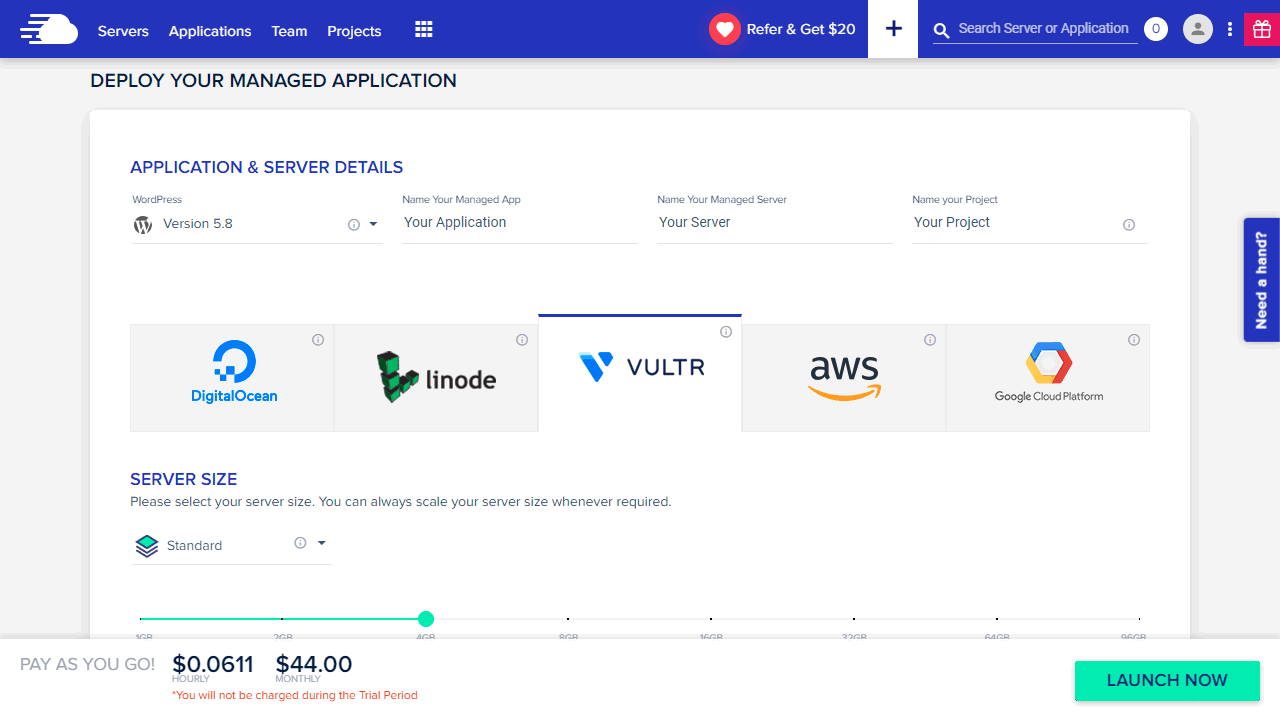
In the end, there is the issue of cloud hosting. Here, many servers work at once to provide you with virtually infinite computing power and storage space. The advantage of this is that there can be virtually no more failures and all visitor numbers, no matter how high, can be served accordingly. Accessibility is therefore guaranteed, even during peak loads. The disadvantages are the complicated technology, separate database servers, as well as high costs in operation, since the computing power is not charged at a flat rate, but according to use. This is often more expensive than running your own server. That’s why cloud hosting is more for those where the server is no longer enough.
Following are the most popular cloud server providers:
- DigitalOcean
- Linode
- Vultr
- AWS
- Google Cloud Platform
Technically, cloud hosting usually offers the fastest hardware and the shortest load times.
The CDN (Content Delivery Network), on the other hand, is a federation of nodes and is added to load resources faster or provide downloads. For example, a CDN ensures that you don’t have to load movies from a distant US server at Netflix, but from a location as close to you as possible, which drastically reduces download times and increases availability. With WordPress, it has recently been the trend to run the CMS as a staging environment and deliver the static version via CDN. This is also possible, but comparatively expensive and more for professionals.
How useful is managed hosting?
There are the different types of WordPress hosting always also as so-called managed hosting. Managed basically means that someone else takes over the administration for you. With the V-Server and Root-Server, it’s all about the configuration and interface. If you usually work on the server itself, managed hosting makes sure that you get a menu and are allowed to select all settings very easily. Pure WordPress hosting, on the other hand, is always managed, because here the provider makes special optimizations to the servers, which should not be changed independently at all. These changes are the unique selling point of WordPress-only hosting.
Managed hosting always makes sense if you want to deal with as little technology as possible. So basically, managed just means that someone does the fiddling for you. No more complicated settings. With managed hosting, a professional does it all for you and you get started with your WordPress website right away.
With WordPress hosting, you usually don’t have a choice anyway. Unless you decide to rent a server and use it for your WordPress installation.
Best WordPress Hosting
Hosting recommendations are usually garbage.
Often extremely cheap hosting packages for $ 3 are recommended, others advertise a $ 100 VPS, because they earn the most as an affiliate thereby. In the end, we all just want the fastest possible web space for as little money as possible.
And optimized for WordPress!
What else is important? The server should be a fast backbone for your website and the support should answer as fast as possible, and preferably in your language.
You can get all this at Cloudways from $ 10,00 / month.
My conclusion about the types of WordPress hosting
Classic hosting in the form of shared hosting no longer plays a great role in my eyes. There is no reason not to start with a V-Server. WordPress hosting is often about still having some resources in reserve to cover any peak loads. A variable V-Server is the minimum and for the start also a good and cost-effective solution.
The simplest are and remain full-fledged WordPress hosters. These offer special packages, for a single WordPress installation. Everything is tuned to the CMS, everything runs smoothly and thus you don’t have to worry or worry about any technical aspects. This form of hosting always costs a bit more than if you manage the server yourself, but is definitely the easiest and most pleasant way to run a WordPress website.
Best WordPress Hosting
Hosting recommendations are usually garbage.
Often extremely cheap hosting packages for $ 3 are recommended, others advertise a $ 100 VPS, because they earn the most as an affiliate thereby. In the end, we all just want the fastest possible web space for as little money as possible.
And optimized for WordPress!
What else is important? The server should be a fast backbone for your website and the support should answer as fast as possible, and preferably in your language.
You can get all this at Cloudways from $ 10,00 / month.
If you’re not afraid of technology and you know your way around a bit, you can always go for a V-Server or Root-Server apart from WordPress hosting. It’s not quite as easy, but at least it’s cheaper. In addition, if you want, you can manage more than one WordPress installation. So servers are less limiting, but may be more complex to configure. Don’t forget about the security of your dedicated server.
What you choose is up to you. In my articles and on my WordPress hosting subpage I try to give you some details. So if you are interested, read my other guides as well.
